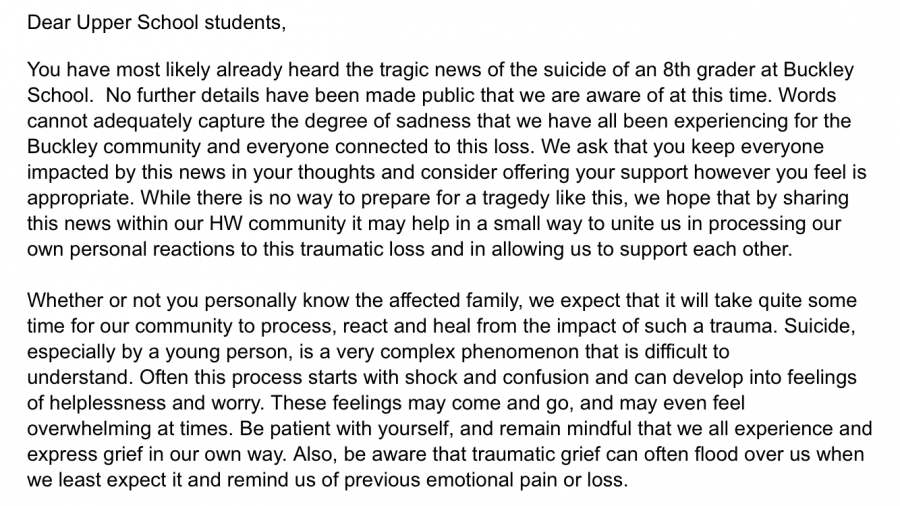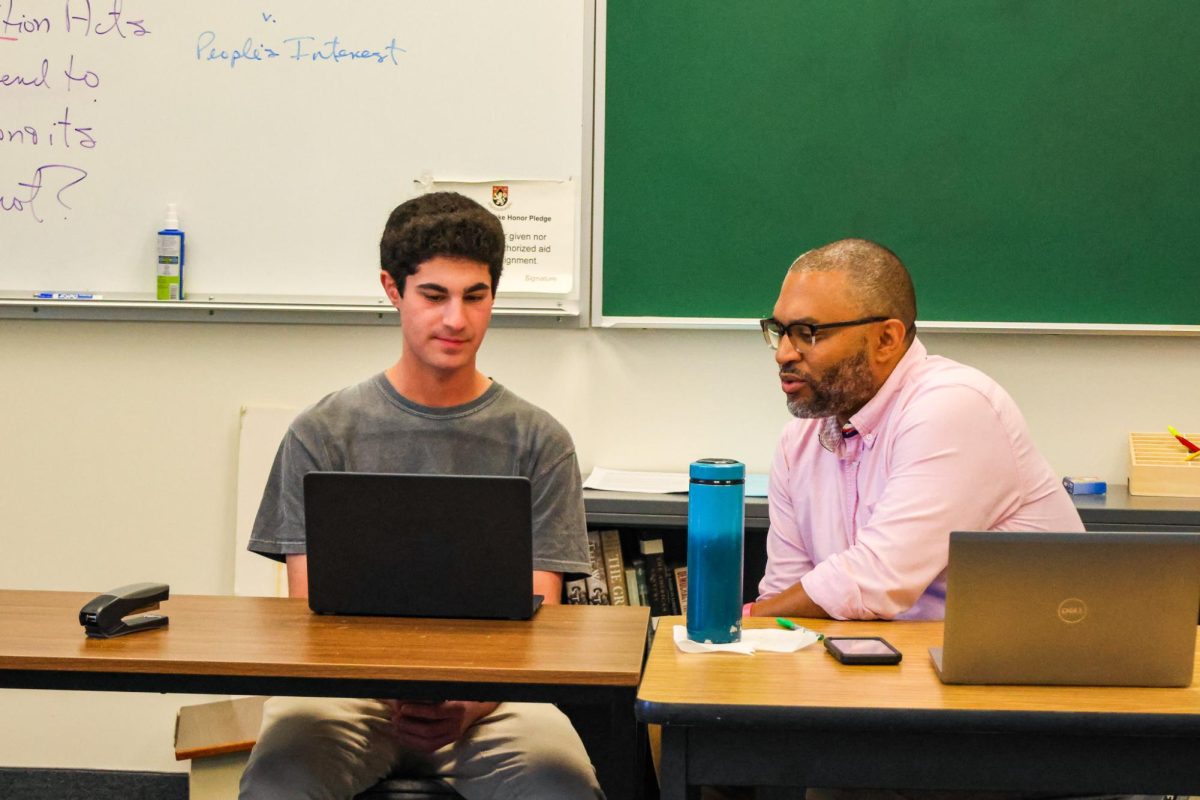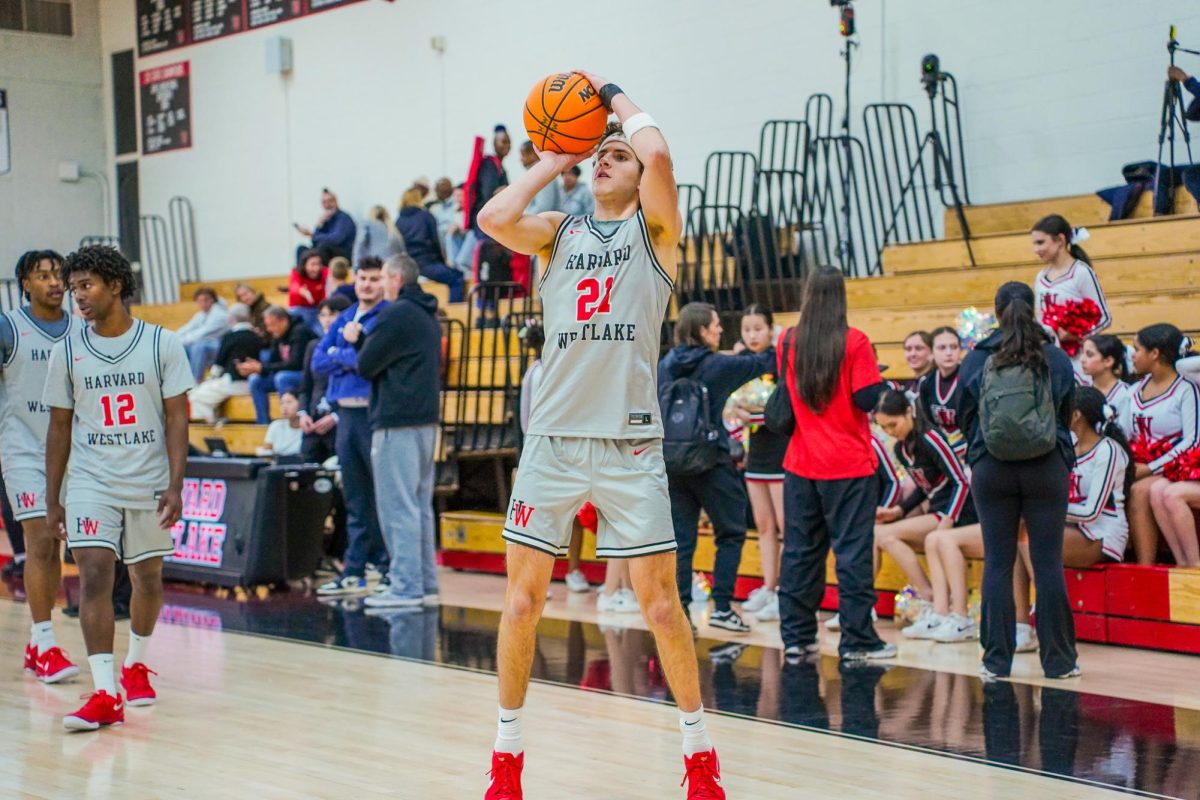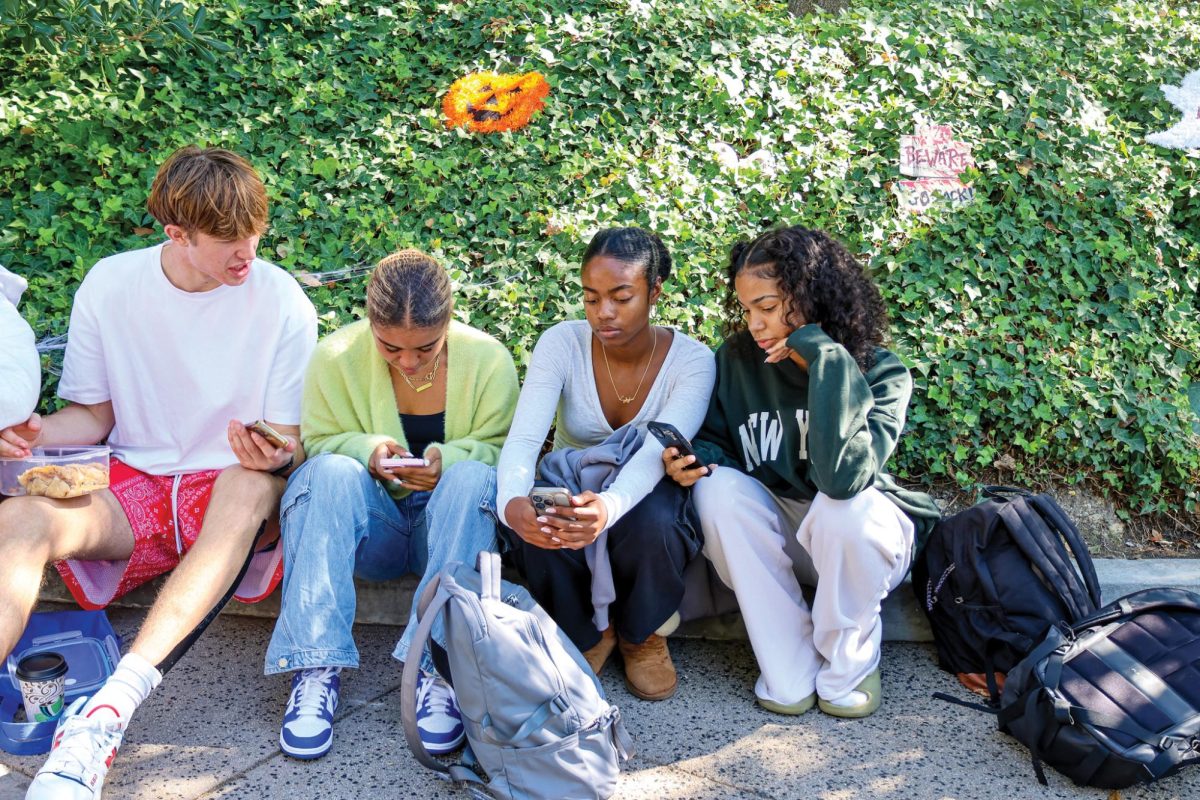Head of Upper School Laura Ross expressed sympathy and offered mental health resources to students in light of a suicide of a Buckley eighth grader in an email sent to upper school students, parents and faculty Feb. 2.
“While there is no way to prepare for a tragedy like this, we hope that by sharing this news within our HW community it may help in a small way to unite us in processing our own personal reactions to this traumatic loss and in allowing us to support each other,” Ross said in the email.
Ross also reached out to Harvard-Westlake students who volunteer as hotline listeners for Teen Line, a non-profit teen helpline based out of the Cedars Sinai Medical Center. During First and Third Wednesday assembly on Wednesday, the volunteers shared why Teen Line is a resource beneficial to the student body.
“Teen Line not only provides a safe, anonymous, judgment free space for a teen to take any issue, but it more importantly is with a peer, someone their age, someone who really understands and has the 200 hours of training to handle every situation, despite their age,” Teen Line volunteer Evan Keare ’18 said.
Continuing conversations about mental health, implementing clubs similar to Peer Support and ensuring counselor accessibility to a student body are some of the ways Teen Line Program Director Cheryl Eskin said schools could protect their students’ mental health and diminish the stigma surrounding it.
“Depression and anxiety seem to be the biggest issues we are seeing [in teens],” Eskin said. “I think schools and communities need to look at the pressures we are putting on our kids, and prioritize sleep, down time and exercise. We need to teach coping skills, things like mindfulness or meditation, and how stress can take its toll on your body.”
Similarly, upper school psychologist Sophie Wasson said that based on the topics students speak with her about, some of the biggest mental health issues within the student body seem to be academic pressure, academic and social competition and anxiety and depression. Creating more spaces on campus to discuss mental health could alleviate some of these issues, she said.
“I think [the school should have] more spaces for students to engage in conversations around what they’re going through, around wellness and about what it’s like to be a Harvard-Westlake student,” Wasson said.
Eskin also emphasized the importance of having an open and receptive school culture, in which there isn’t a stigma surrounding mental health issues.
“I think schools, parents and peers all contribute to the pressure,” Eskin said. “Suicide is very complicated, and I don’t believe there is one cause per se, but we are seeing more and more depression and anxiety, particularly among kids in these tough environments, which is alarming.”
The administration is working on a number of long-term initiatives regarding mental health, Ross said. The upper school counseling team consists of Wasson, Assistant to the Head of Upper School Michelle Bracken, Chaplain J. Young and counselor and humanities teacher Luba Bek. The counseling team is also working with faculty and staff.
“While the kids might not be hearing about it, faculty and staff are talking about [mental health issues] behind closed doors and how to best balance all the academic pressure you’re under with self-care and being able to chill out, hang out with friends and enjoy other things, [in addition to] all the school work,” Wasson said.
This spring, students will have the opportunity to take the Stanford Survey of Adolescent School Experiences, which Ross said can be helpful in determining the source of students’ stress.
More than 100,000 students from over 150 schools have participated in the survey, according to challengesuccess.org.
Additionally, the administration is planning on initiating some late start days next school year, as well as experimenting with different types of schedules, including a block schedule.
Prefect Council seniors initiated a mental health committee, which consists of Prefects and Peer Support leaders Sarah Conway ’18, Eli Timoner ’18 and Prefect Princie Kim ’18.
“Being a Peer Support leader, I’ve definitely been on the side of helping kids get through their mental health issues when they come up, but I think [Prefect Council’s] biggest concerns were that there isn’t enough mental infrastructure at the school and enough things put in place to protect students’ mental health,” Timoner said.
The committee’s main focuses are currently mitigating workload problems, working with the administration on a potential late start policy and addressing student nicotine addiction, Head Prefect Julia Cosgrove ’18 said.
They hope to change the current testing policy, in which students can reschedule assessments if three or more fall on the same day, to a system where students can reschedule an assignment to a later week if they have four or more “big assignments” in a week, Timoner said. In handling student nicotine addiction, Timoner said Prefect Council aims to ensure students will receive help instead of punishment.
Looking ahead to the long-term mental health initiatives, Ross emphasized the importance of thoroughly examining the school environment.
“We want to make sure students understand what the resources are, who’s on campus and what they can do if they’re worried about a friend,” Ross said. “At the same time, it’s deeper. What is it in these competitive environments that can make kids feel less than or feel like they’re not enough? That’s the feeling that can trigger someone who has depression, other [mental health issues] or not. We want to make sure we’re looking deeper.”



































